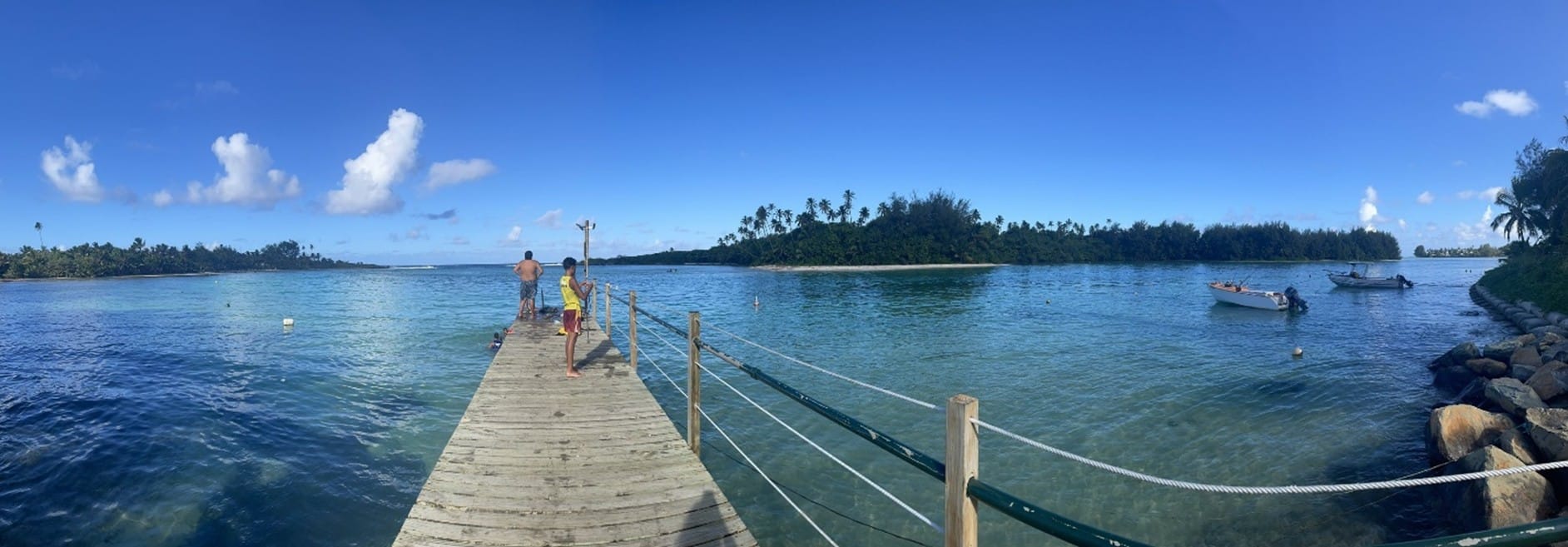Cook Islands Foundation
Situated in the South Pacific Ocean, the Cook Islands are a self-governing territory in free association with New Zealand. While New Zealand oversees military defense and international relations, the Cook Islands have operated with internal self-governance since 1965.
A Cook Islands Foundation combines traditional foundation principles with enhanced benefits. Notably, it provides robust asset protection, making it significantly more challenging for creditors to dispute asset transfers or challenge the foundation’s legitimacy.
The legal framework for Cook Islands Foundations is established under the Foundation Act of 2012, which includes various protective provisions to safeguard assets.
These foundations can be fully owned by foreign individuals or entities, are cost-effective and straightforward to establish, and offer exceptional levels of privacy, asset security, and tax advantages.
Advantages of Cook Islands Foundations

Cook Islands Foundations provide a range of benefits, particularly for asset protection, estate planning, and wealth management. Below are some of the key advantages:
Open to Foreign Ownership
The legal framework permits non-residents to establish foundations with beneficiaries and assets located anywhere in the world.
Robust Asset Protection
The Cook Islands is recognized for having some of the most comprehensive asset protection laws globally.
Creditors must overcome significant legal obstacles, including proving fraudulent intent with high evidentiary standards.
There is a short statute of limitations (typically one to two years) for claims against assets held in a foundation.
Estate Planning & Wealth Preservation
Foundations serve as an alternative to a traditional will, ensuring smooth inheritance planning.
They help safeguard assets for future generations while avoiding probate complications and inheritance disputes.
Tax Efficiency
Foundations and their beneficiaries are exempt from local Cook Islands taxes, including income tax, capital gains tax, and inheritance tax.
However, individuals subject to taxation in their home country, such as U.S. taxpayers, must comply with their respective tax reporting requirements.
Confidentiality & Privacy
The identities of the founder, beneficiaries, council members, and enforcer remain private, as they are not recorded in any public registry.
Details about foundation assets and their locations are also not disclosed in public records.
Flexibility & Founder Control
Founders have substantial control over how the foundation operates.
They can customize asset management, distribution rules, and investment strategies based on their preferences.
Legal Stability & Certainty
The Cook Islands legal system is based on English common law, offering strong legal precedents that uphold asset protection structures.
Freedom from Forced Heirship Laws
Unlike many jurisdictions, Cook Islands Foundations allow full control over asset distribution, without restrictions imposed by forced heirship regulations.
Shield Against Foreign Court Judgments
Foreign legal rulings are not automatically enforced unless they align with Cook Islands law.
Creditors must initiate legal proceedings within the Cook Islands, creating significant challenges and costs for claimants.
Perpetual Existence
Unlike trusts, which may have a fixed duration, Cook Islands Foundations can exist indefinitely, making them ideal for long-term wealth preservation.
Ideal for High-Net-Worth Individuals (HNWIs)
Provides enhanced security and privacy for individuals and families with international assets.
Suitable for business succession planning, philanthropic efforts, and investment holding structures.
No Minimum Capital Requirement
There is no mandatory capital threshold for establishing a foundation.
Quick & Efficient Setup
The process of registering a foundation can be completed in as little as one week.
English-Speaking Jurisdiction
As a self-governing entity in free association with New Zealand, English is the official language, ensuring ease of communication.
Common Uses of a Cook Islands Foundation

A Cook Islands Foundation is widely utilized for estate planning due to its unique legal structure. Since the Foundation Act does not recognize foreign forced heirship laws, individuals have greater flexibility in asset distribution. Additionally, the foundation offers high levels of confidentiality, is not subject to local taxation, and has no fixed lifespan, making it an excellent long-term solution for wealth preservation.
Beyond estate planning, foundations serve various functions, including asset protection, tax efficiency, and international business operations, while also ensuring privacy for their owners and beneficiaries.
Cook Islands Foundations can be established for charitable, non-charitable, or mixed purposes. They may be designed to benefit specific individuals or serve a broader philanthropic or business objective.
Cook Islands Foundation Name
The foundation’s name must be distinct and not identical or too similar to any existing legal entity in the Cook Islands. Additionally, the name must include the word “Foundation” at the end. It should not be considered offensive, misleading, or otherwise inappropriate under regulatory guidelines.
Cook Islands Foundation – Basics
A foundation is an independent legal entity, similar to a corporation or company, but distinct from a trust, which is a contractual arrangement between a settlor and a trustee. As a legal entity, a foundation can own property, hold assets, enter into contracts, initiate legal proceedings, and be subject to lawsuits.
Although a foundation shares similarities with a corporation, it does not have shareholders. Instead, like a trust, it can have beneficiaries who receive benefits from its assets.
Key Characteristics of a Cook Islands Foundation:
- The use of nominee founders is not permitted.
- There is no minimum capital requirement, but the founder must contribute assets or funds to the foundation. Additionally, third parties can donate assets without becoming founders.
- A foundation does not require beneficiaries, but it must have a defined purpose, which can be charitable, non-charitable, or both. The purpose may involve benefiting specific individuals or fulfilling broader objectives.
- Depending on its stated purpose, a foundation may conduct commercial activities, either directly or through a separate legal entity, as long as these activities align with its mission.
Registration and Rules
The Cook Islands Foundation Act establishes a formal registration process for foundations. Each foundation must have a foundation instrument, which outlines essential details such as its name, objectives, and the registered agent in the Cook Islands. This document is submitted to the Registrar as part of the registration process.
In addition to the foundation instrument, a foundation is required to have rules that comply with the Act. While certain key aspects must be addressed within these rules, the legislation provides considerable flexibility in their drafting. This allows founders and their advisors to clearly define how the foundation will be managed, operated, and structured to benefit its beneficiaries. Unlike the foundation instrument, the rules do not need to be filed with the Registrar but must be maintained by the registered agent in the Cook Islands.
The foundation rules serve as the primary governing document, detailing how the foundation will function. These rules typically cover:
- The formation and responsibilities of the council
- The appointment of the registered agent
- The roles and duties of an enforcer, if applicable
- The procedures for adding assets to the foundation
- How the council exercises its powers
- The distribution of assets in the event of dissolution
Duration
Foundations have no time limits regarding their lifespan.
Confidentiality, Disclosure and Asset Protection
Cook Islands Foundations offer exceptional privacy protections. While the use of nominee founders is not allowed, the identities of founders, beneficiaries, and council members remain confidential, as they are not recorded in any public registry. Additionally, the Foundation Act includes strict non-disclosure provisions, making it a criminal offense to illegally disclose information about the foundation or its associated parties.
Furthermore, both foundation assets and related information are highly protected under Cook Islands law. Several legal safeguards make it extremely difficult for external parties to file claims against a foundation’s assets:
- Exclusive Jurisdiction: Lawsuits against a foundation can only be filed within the Cook Islands.
- Non-Recognition of Foreign Court Orders: The Cook Islands does not enforce foreign legal rulings, including those related to divorce or other civil judgments.
- Strict Time Limit for Claims: Creditors must initiate legal action within two years of the asset being transferred to the foundation.
- High Burden of Proof: To challenge an asset transfer, a creditor must prove beyond a reasonable doubt that the founder was either insolvent or deliberately attempting to defraud creditors at the time of the transfer.
Estate Planning
The Act disallows the enforcement of foreign forced heirship laws, which may require an estate to include individuals, the deceased intentionally excluded. This could involve ex-spouses, disinherited children, children from unmarried partners, or any others who, according to a foreign jurisdiction’s laws, may be entitled to a share of the estate.
For a creditor to succeed in a lawsuit before the Cook Islands High Court against a foundation, they must demonstrate beyond a reasonable doubt that the founder intended to defraud the creditor or was insolvent at the time the assets (specific property) were transferred to the foundation. This is a substantial burden of proof. Additionally, the 2-year statute of limitations, as previously mentioned, applies.
Registration
The only required legal document for establishing a foundation is the “foundation instrument,” which must be submitted to the Registrar. This document includes essential details such as the foundation’s name, its objectives, and the name and address of the local registered agent.

A foundation is similar to a hybrid of a company and a trust. While it operates in many ways like a company, it lacks shareholders and other typical company features. Its structure and governance resemble that of a trust, and like a trust, it has beneficiaries. However, unlike a trust, a foundation does not have a fixed duration and is recognized as a distinct legal entity.
Cook Islands foundations consist of Founders, Council Members, and Beneficiaries. Although having beneficiaries is not mandatory, every foundation must have a defined purpose, which can be either charitable or non-charitable. This purpose may also be directed toward benefiting specific individuals.
Founder
Founders are individuals or legal entities who establish the foundation’s governing rules and contribute funds and assets to it. They can be from any country, whether natural persons or legal entities.
Council
The management of Cook Islands foundations is handled by a council, with a minimum of one member required. The person overseeing the foundation’s operations is referred to as the enforcer. Council members may be individuals or legal entities from any jurisdiction.
Beneficiaries
While a Cook Islands Foundation may designate beneficiaries, this is not a requirement. Beneficiaries can be citizens or residents of any country, but they hold no legal or beneficial claims to the foundation’s assets. The council is not obligated to perform any legal duties towards the beneficiaries.
Enforcer
An enforcer must be appointed by the foundation to ensure that the council carries out its duties as outlined in the foundation’s governing rules. These rules also specify the enforcer’s responsibilities and authority.
Local Presence Requirements
Local Registered Agent – Local Registered Office
The foundation is required to designate a local registered agent and establish a local registered office. The office address may be the same as that of the registered agent. The registered agent and office are responsible for retaining the following documents:
- A copy of the foundation’s governing rules,
- A register listing the names and addresses of the council members,
- Information about the Enforcer, including their date of appointment,
- Records of all powers exercised by council members through written resolutions,
- Financial documentation outlining the foundation’s current financial standing.
- These documents are not available for public inspection.
Taxation
Foundations are exempt from corporate income, capital gains, gift, inheritance, estate taxes, and stamp duty. Distributions from the foundation to its beneficiaries are not subject to tax. However, beneficiaries may be liable to tax in their home country if they are required to report global income to their tax authorities.
Public Records
The names of the founder, council members, enforcer, and beneficiaries are not disclosed in public records. Additionally, details about the foundation’s assets or their locations are not included in any public documentation.
Time for Formation
The time required to draft the foundation’s governing rules and registration documents depends on the preparer. However, registration typically takes between 3 to 5 working days.
Migration, Dissolution, and Termination
An overseas foundation can be transferred and registered in the Cook Islands, allowing it to take advantage of the flexibility and protections provided by the Cook Islands Foundations Act. Upon registration in the Cook Islands, the foundation will be regarded as a local foundation, with its legal identity and continuity intact.
The Act specifies several conditions under which a foundation can be dissolved and terminated by its council members. The foundation’s governing rules may outline specific events that lead to its termination. Additionally, a foundation may be dissolved in cases of bankruptcy, the completion, failure, or expiration of its objectives, or through an order from the High Court to liquidate the foundation. The High Court may issue such an order at the request of a council member, the founder, beneficiaries, enforcer, creditors, or the Registrar.
Conclusion

As clients and planners look to flexibility in wealth planning vehicles, the foundation provides an alternative to the more traditional trust. In developing its foundations legislation the Cook Islands has taken the opportunity to learn from other jurisdictions to bring in the most advantageous provisions combined with its existing expertise in the area of asset protection.
Set up your Business Entity today!
Our Business Development Team is ready to guide and assist you to discuss all options you have and to provide you with all the support you need to enable you to take the right decision facing your specific needs!
All our Consultancy and Advisory services are completely FREE!
Packages and Prices!
Inclusions
Year 1 Incorporation and service fees.
Optional Services (Bank Account opening, Nominee services, Certification of documents, amongst others).
Annual Renewal service fees for year 2 and subsequent years, to keep your company in good standing and full Compliant at all times.